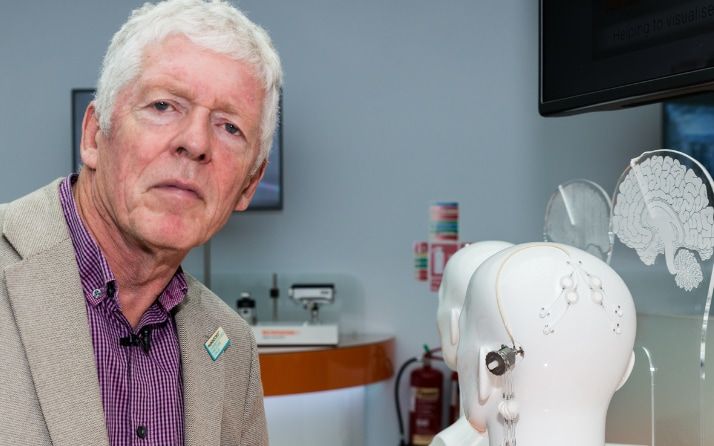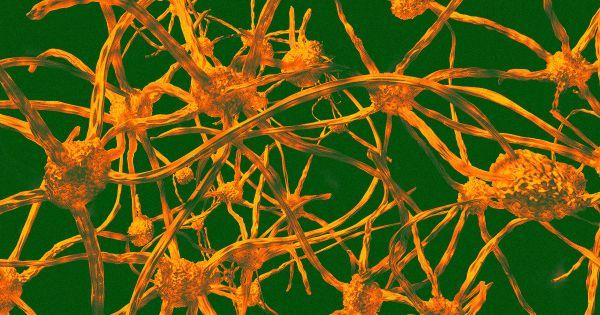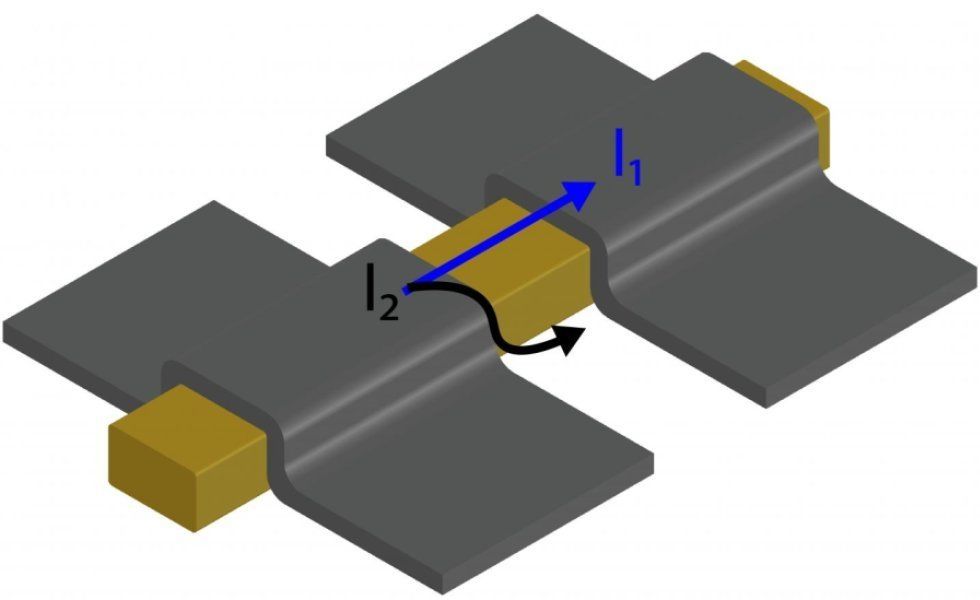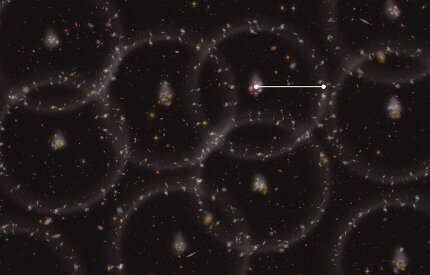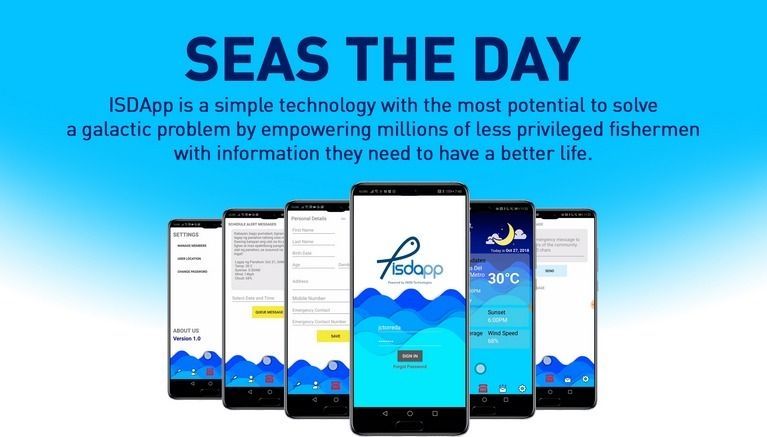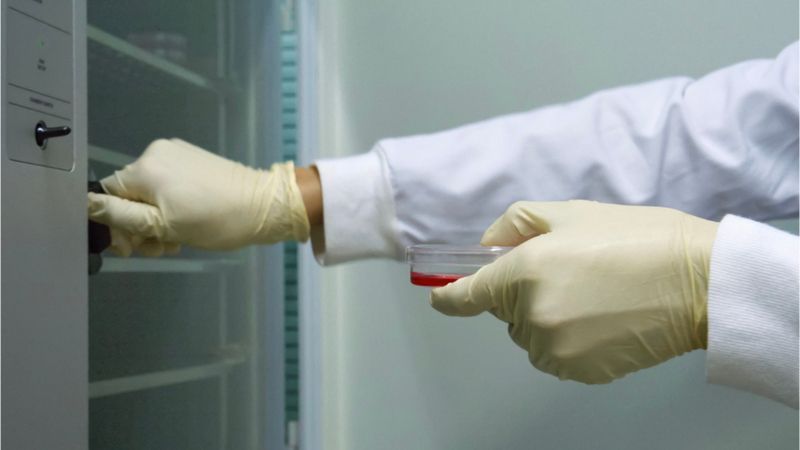Page 9079
Feb 26, 2019
‘Baby Bio’ for brain cells trial halted despite Parkinson’s patients seeing ‘miracle’ results
Posted by Genevieve Klien in categories: biotech/medical, neuroscience
Parkinson’s patients treated with a groundbreaking new therapy to regrow their brain cells have criticised a decision by regulators to stop trials as ‘sinful.’
In the biggest surgical trial ever for the disease, British patients had holes drilled into the heads and special ports implanted so that a naturally occurring protein could be infused directly into the brain over nine months.
Described as ‘Baby Bio’ for brain cells, the Glial Cell Line Derived Neurotrophic Factor (GDNF) encourages the growth of cells that produce dopamine, a crucial hormone needed for movement, which vanishes in Parkinson’s patients.
Feb 26, 2019
Google expands AI-powered grammar checker in Docs to all G Suite users
Posted by Genevieve Klien in category: robotics/AI
Feb 26, 2019
New Research: Bone Marrow Transplants Might Prevent Aging
Posted by Paul Battista in categories: biotech/medical, life extension
Feb 26, 2019
‘Immunizing’ quantum bits so that they can grow up
Posted by Genevieve Klien in categories: biotech/medical, computing, quantum physics
Long story short, qubits need a better immune system before they can grow up.
A new material, engineered by Purdue University researchers into a thin strip, is one step closer to “immunizing” qubits against noise, such as heat and other parts of a computer, that interferes with how well they hold information. The work appears in Physical Review Letters.
The thin strip, called a “nanoribbon,” is a version of a material that conducts electrical current on its surface but not on the inside — called a “topological insulator” — with two superconductor electrical leads to form a device called a “Josephson junction.”
Feb 26, 2019
Neutrinos seen in the clustering of galaxies
Posted by Genevieve Klien in categories: evolution, particle physics
In early times, the universe was an energetic mix of strongly interacting particles. The first particles to break free from this dense soup were neutrinos, the lightest and most weakly interacting particles of the Standard Model of particle physics. These neutrinos are still around us today, but are very hard to detect directly because they are so weakly interacting. An international team of cosmologists, including Daniel Baumann and Benjamin Wallisch from the University of Amsterdam, have now succeeded in measuring the influence of this ‘cosmic neutrino background’ on the way galaxies have become clustered during the evolution of the universe. The research was published in Nature Physics this week.
Feb 26, 2019
And the Global Winners Are
Posted by Michael Lance in categories: education, space travel, virtual reality
Global Winner ISDApp was created by a team called iNON in the Philippines (“isda” is the Filipino word for “fish”). This community app is designed to empower fishermen with daily information useful for fishing and safety. #SpaceApps #SpaceAppsPH
A virtual reality (VR) exploration of the Moon; an educational, problem solving, and collaborative VR game for kids using NASA and planetary data; and a tool to express the wonders of satellite imagery through audio are three of the six apps chosen as Global Winners in NASA’s 2018 Space Apps Challenge. The six Global Winners were selected from 1,375 apps created during an intense 48-hour global hackathon last October.
Feb 26, 2019
The February journal club will focus on the recent paper “Genomics of 1 million parent lifespans implicates novel pathways and common diseases and distinguishes survival chances”
Posted by Steve Hill in categories: biotech/medical, life extension
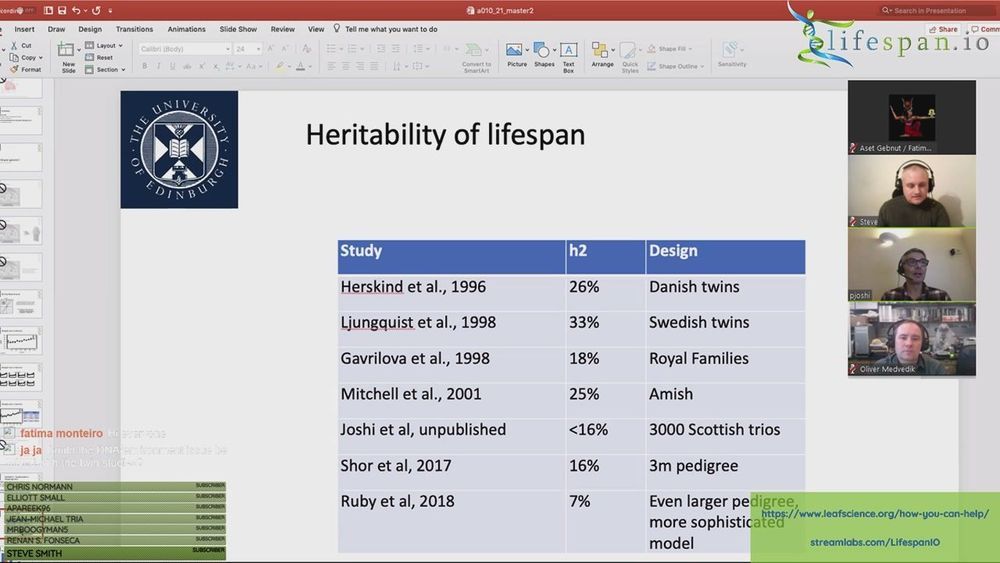
Hosted by Dr. Oliver Medvedik, we will be joined by study authors, Dr. Peter Joshi and Paul Timmers both from the University of Edinburgh, UK, who will guide us through this fascinating genomics study of human longevity.
The research paper can be found here.:
https://elifesciences.org/articles/39856
Feb 26, 2019
A Step Closer to Universal Stem Cells
Posted by Steve Hill in category: biotech/medical
Researchers at UC San Francisco have taken science a step closer to creating stem cells that are effectively “invisible” to the immune system. This may ultimately lead to the production of “off-the-shelf” stem cell therapies that do not need to be patient matched.
The immune system is a double-edged sword
One of the big challenges in creating effective stem cell therapies is how the immune system responds to cells from other donors and sources. This complex, multilayered system is designed to defend our bodies from the constant onslaught of invading pathogens that we encounter in our daily lives.

